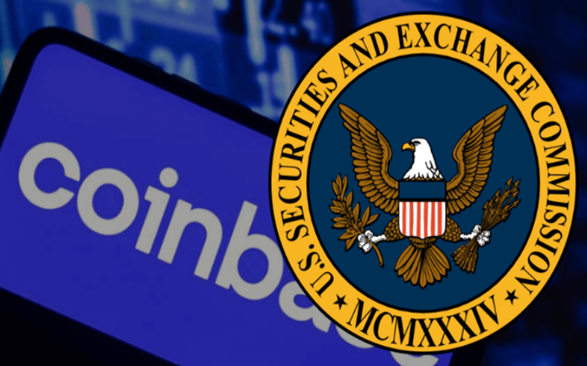by Jude Ayua
The US Court of Appeals for the Third Circuit, on 13 January 2025, ruled against the US SEC’s denial of Coinbase’s request for specific digital asset regulations.
“We will vacate an agency’s order denying a petition for rulemaking if the denial is ‘arbitrary, capricious, an abuse of discretion, or otherwise not in accordance with law,’” the Court noted. The Court gave three reasons for describing the denial as “ arbitrary and capricious.”
First, the SEC’s decision to apply the securities laws to digital assets in enforcement actions … requires rulemaking. Second, the emergence of digital assets removes a fundamental factual predicate underlying the entire existing regulatory framework… third, the SEC’s explanation for its decision was conclusory and insufficiently reasoned.
Background to the case
In July 2022, Coinbase petitioned the SEC arguing that existing securities laws were “fundamentally incompatible with the operation of digital asset securities” and proposed the SEC should adopt new rules tailored specifically to digital assets. Coinbase identified workability issues, including the decentralized nature of blockchain, non-investment uses of digital assets, and the inadequacy of current disclosure, custody, and registration requirements for digital assets.
After nine months without action, Coinbase sought a writ of mandamus to compel the SEC to respond. The SEC denied the petition in December 2023, asserting that existing laws were sufficient and emphasizing its discretion to prioritize regulatory matters over the requested rulemaking for crypto assets.
Coinbase’s U.S. subsidiary, Coinbase, Inc. petitioned the Appeal Court for the Third Circuits to review the SEC’s decision and asked the Court to order the SEC to institute a “notice-and-comment rulemaking” proceeding. Coinbase’s petition challenged the SEC’s decision on the grounds that it was “arbitrary and capricious,” arguing that the decision to apply securities laws to digital assets through enforcement actions constituted a significant policy change that required rulemaking. Coinbase further contended that the emergence of digital assets represent a fundamental change in the scope of existing securities regulations, requiring new rules. Coinbase also claimed that the SEC’s explanation for its decision was “conclusory and insufficiently reasoned.”
Read also: U.S SEC’s XRP lawsuit against Ripple finally over.
US SEC to justify its denial
The Court ruled that “the agency must ‘adequately explain the facts and policy concerns it relied on’ and its factual explanation must have ‘some basis in the record.’” The Court explained that “an agency’s decision to deny a petition for rulemaking ‘must be reasoned if it is to survive arbitrary and capricious review,” insisting the SEC must provide “assurance that [it] considered the relevant factors.”
In agreeing with Coinbase that “the SEC’s explanation is insufficiently reasoned,” the Court rejected the SEC’s reasons for denying Coinbase’s rulemaking petition: that existing securities laws are sufficient for crypto assets; ongoing regulatory efforts may inform future decisions; and prioritizing Coinbase’s request would limit the SEC’s ability to address broader regulatory priorities. Coinbase’s reasons included the issues of workability, resource allocation, and incremental action.
Court rejects rulemaking petition
The Court, however, noted it would not grant Coinbase’s rulemaking request: “We are not persuaded that this is the rare case that warrants the extraordinary remedy Coinbase seeks.” Furthermore, the Court explained that:
…we will rubber stamp an agency’s order. Agency decisions denying petitions for rulemaking are still subject to judicial review, and may be “overturn[ed] … for compelling cause, such as plain error of law or a fundamental change in the factual premises previously considered by the agency… agencies have ‘broad discretionary powers to promulgate’ rules and if it chooses to develop rules, it has primary discretion in choosing how to do so. The SEC is not compelled … to start notice-and-comment rulemaking here. Whether it does so is a matter of discretion to which we afford great deference.
“Old rules collide with a new invention,” Bibas.
The Court, in its decision, agreed with Coinbase’s argument that existing securities laws are not applicable to digital assets.
[Coinbase] has reasonably explained that the existing securities law framework is not predicated on the assumption that it will never burden any potential new market participants. In the securities-law context, it is unremarkable that novel complex financial instruments may not always fit neatly within existing securities rules…
In his concurring opinion, Judge Stephanos Bibas wrote in a separate note: “old regulations fit poorly with this new technology.” He noted the SEC’s enforcement actions raise constitutional concerns. “The SEC repeatedly sues crypto companies for not complying with the law, yet it will not tell them how to comply,” Bibas said, explaining such action is a “caginess” that “creates a serious constitutional problem.”
Judge Bibas described the SEC’s insistence that cryptocurrencies must comply with existing securities regulations as “pouring new crypto wine into old regulatory bottles.” Bibas argued “applying the old securities regulations to this new technology raises thorny questions. Are crypto assets really securities at all? If so, which ones? And, from a practical standpoint, how do the regulations fit them?”
Insisting that the SEC must explain itself clearer as the SEC’s current approach to crypto regulation is confusing, Bibas also warned:
New inventions create new fraud risks, and the agency needs to guard against them. But sporadically enforcing illfitting rules against crypto companies that are trying to follow the law goes way beyond fighting fraud. It targets a whole industry and risks de facto banning it.
Read also: Blockchain advocacy groups sue the U.S IRS over new tax rules.
Coinbase Chief Legal Officer Paul Grewal posted about the Court’s ruling on X: “The court’s decision underlines the urgency for Congress and the SEC to harmonize their approaches,” said Grewal. “Industry participants need well-defined rules to drive responsible growth and protect investors,” Grewal added, comparing the opinion to sports: “you can’t just throw the yellow flag and penalize. You have to lay out the why and what happens next.”
Meanwhile, the Block reported the SEC said in a statement that it was reviewing the court’s decision and “will determine next steps as appropriate.”
Implications for the industry
The Court of Appeal’s decision in this case is important for the crypto industry as it is not only a triumph for Coinbase but the industry as well. The crypto industry has always frowned at the SEC’s regulation-by-enforcement approach to crypto assets, especially under the outgoing Chair Gary Gensler. While the Court did not compel the SEC to promulgate news rules immediately, compelling the agency to reassess its approach is beneficial to the industry.
Furthermore, the court’s emphasis that the SEC’s application of old rules to a new invention is absurd could make the SEC reconsider its regulation-by-enforcement approach. Meanwhile, as President-elect Donald Trump prepares to resume office alongside his pro-crypto cabinet, the industry anticipates more friendly crypto regulations.
Jude Ayua is a policy analyst at CAB. A lawyer, Jude is an associate at Infusion Lawyers where he is a member of the Blockchain & Virtual Assets Group. He is also a member of the Policy & Regulations Committee of the Stakeholders in Blockchain Technology Association of Nigeria (SiBAN). Jude reports and writes on crypto policy and regulations. jude@infusionlawyers.com
Discover more from Crypto Asset Buyer
Subscribe to get the latest posts sent to your email.





